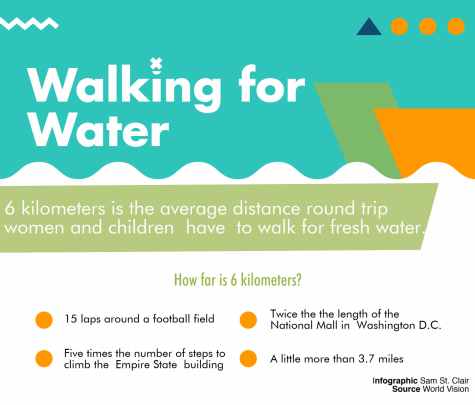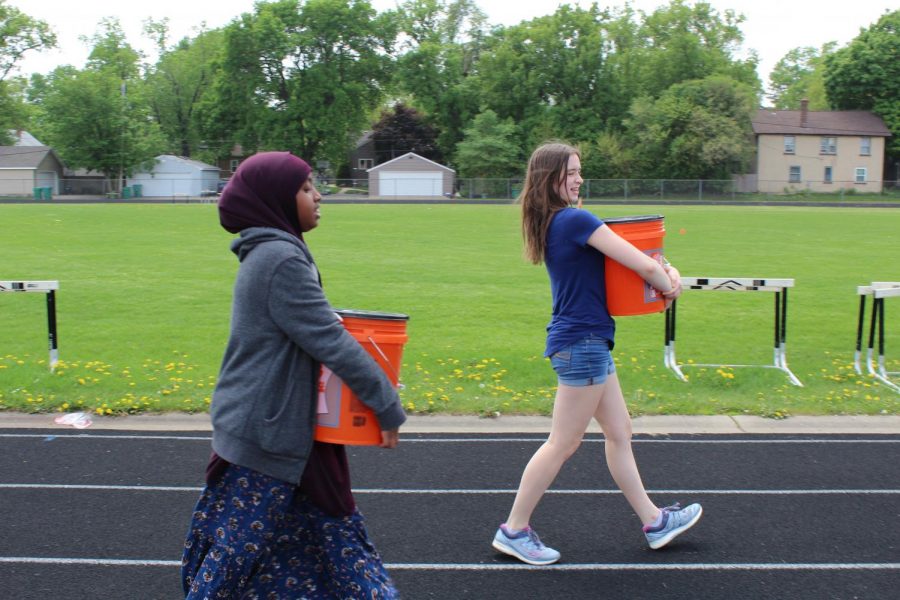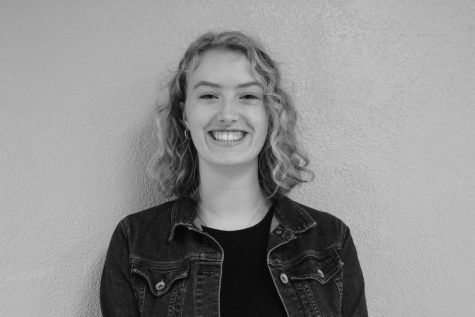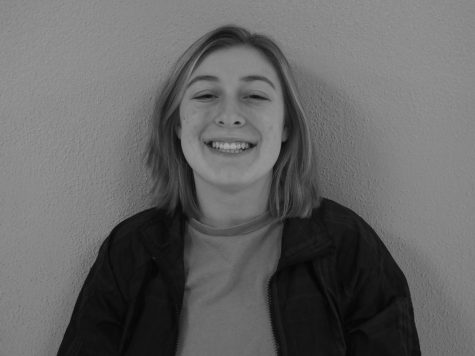Civics/Economics class studies scarcity
Freshmen participate in simulation
Freshmen Iqra Abdi and Courtney Hanson carry five-gallon buckets of water around the track as part of a scarcity simulation in their Civics/Economics class May 22.
May 29, 2018
After walking around the track with a five gallon bucket of water, freshman Courtney Hanson said how she felt people don’t realize how lucky they are to have access to fresh water.
“We take water for granted and we use so much, but it is definitely a limited resource,” Hanson said. “We think it is unlimited and there is so much out there, but a lot of it is unusable, and we are so lucky to have access to clean water, while others are walking so many miles (to get water) and it’s dirty water.”
According to Civics/Economics teacher Sarah Lindenberg, the students are walking with water to get a glimpse into other people’s lives.
“The ninth grade civics and economics students are doing a simulation to actually feel what it’s like to fetch water because in many countries there are a significant number of people, in the billions, who have to fetch water everyday for their families or for themselves,” Lindenberg said.
Freshman Dinah Hunegs said she thinks te activity helps students learn about other people’s situations around the world.
“I think it’s important to see what it’s like for other people around the world trying to get their water,” said Hunegs.
Lindenberg said doing an activity like this allows students to understand other people’s experiences at a deeper level.

“You can see other peoples experiences if you watch a video, but to actually experience it yourself and be tired and feel what it’s like, it gives it a whole new level of perspective,” Lindenberg said.
According to Hanson, the activity relates back to scarcity and other economic topics she is learning in class.
“We are talking about scarcity, especially with water and how thousands of people have to walk miles and miles to go get water”
Lindenberg said despite the constant interactions people have with the world around them, it is still really easy to ignore the hardships of other communities.
“As much as we are connected to the world around us we can also disconnect really easily and be sort of sheltered from the world,” Lindenberg said. “I hope this keeps students interested in becoming more and more informed about (the lives of other people).”
Lindenberg said she wishes that students will realize how privileged they are compared to other people.
“I hope that they take away that it is important to not take things for granted and be grateful for what we do have and some of the modern conveniences and eases that we have in our life compared to to other people.”






 just your everyday Managing editor. I’m totally quirky, but now that quirky is trendy I’m an “edgy” quirky...
just your everyday Managing editor. I’m totally quirky, but now that quirky is trendy I’m an “edgy” quirky...